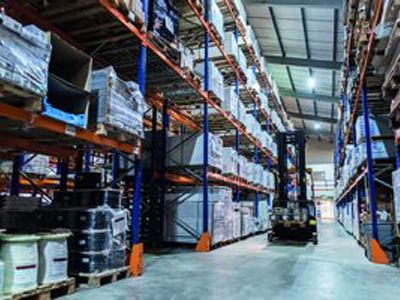
Navigating post-Brexit challenges means verifying the authenticity and quality of electronic components from the EU, says Dan Croft of TechPoint.
As the United Kingdom navigates the complexities of post-Brexit trade agreements and customs regulations, supply chain management has become vital. With the EU ceasing inspections on goods entering the UK, businesses face the challenge of ensuring that their supply chains adhere to health and safety standards, tax regulations and compliance requirements.
There are significant risks for businesses that have not thought carefully about their electronics supply chains in the post-Brexit environment. While consumers are primarily concerned about the safety of food stuffs, the threat of sub-standard products extends to all consumer items. For businesses, the consequences of substituted products and/or non-compliance with standards and regulations can result in serious financial and reputational damage.
Supply chain management
Effective supply chain management is therefore critical to the electronics manufacturing industry. Managing a complex network of suppliers and distributors requires both time and investment, but it is critical to ensure high standards are upheld throughout. This includes carefully verifying the authenticity and quality of electronic components while ensuring compliance with all applicable tax regulations.
Businesses must be proactive in protecting their supply chains by implementing robust quality control measures, conducting regular audits and ensuring compliance with regulations. Collaboration with suppliers and other stakeholders is also essential – it will help businesses to mitigate risks and stay informed about changes in customs regulations and trade agreements.
The impact on electronic components
In the electronic components industry there are specific considerations for supply chain managers after Brexit. One of the most important considerations is ensuring that the electronic components used in manufacturing meet the required standards and are authentic.
Due to the global supply chain crunch there has been a rise in counterfeit components as design engineers are turning to unauthorised ‘grey market’ distributors. Counterfeit products create several problems such as being a health hazard and/or lower performance. That is why investing in advanced technology, such as scanning electron microscopy and energy dispersive X-ray spectroscopy, which can compare and detect counterfeit products is necessary to protect a company from using potentially faulty or unverified parts.
There are also new challenges for UK companies in verifying the authenticity and quality of electronic components coming from EU countries. This is particularly relevant for components that are critical to the performance and safety of electronic products, such as those used in medical devices, aerospace and automotive industries. During the Covid-19 pandemic, there was a critical shortage of semiconductors for medical equipment, such as ventilator systems. To avoid a repeat of this crisis, it’s important that the UK takes steps to secure the supply of vital electronic components.
Another consideration for the supply chain management of electronic components is the impact of Brexit on customs regulations and tariffs. Businesses must stay informed about changes in these regulations to ensure that they comply with all relevant requirements and avoid any potential penalties. Partnering with dedicated supply chain experts that have the resources to focus on adapting to changing legislation will help businesses to better manage and mitigate disruption. It is also crucial that UK businesses allow more time for exporting and importing goods to the EU as customs checks could extend lead times.
Sustainable and ethical supply chains
The increased focus on sustainability and ethical sourcing means businesses also need to consider the environmental and social impact of their supply chain. This includes ensuring that suppliers adhere to responsible sourcing practices and that electronic waste is disposed of in an environmentally responsible manner.
This follows the shift towards sustainability in recent years. Customers are becoming increasingly environmentally conscious in their purchasing habits, while EU and UK regulators are ramping up legislation around sustainability as governments aim for net-zero targets.
Supply chains often represent a given company’s largest carbon footprint. With this in mind, it is crucial that each link within a supply chain is carefully audited to ensure standards are being met. A poor ethical and environmental track record has the potential to significantly damage a company’s reputation.
Managing the supply chain of electronic components post-Brexit requires businesses to prioritise quality control, compliance and sustainability. Yet, by taking a proactive approach and working closely with suppliers and other stakeholders, UK businesses can mitigate risks and ensure that their products meet the highest standards.
